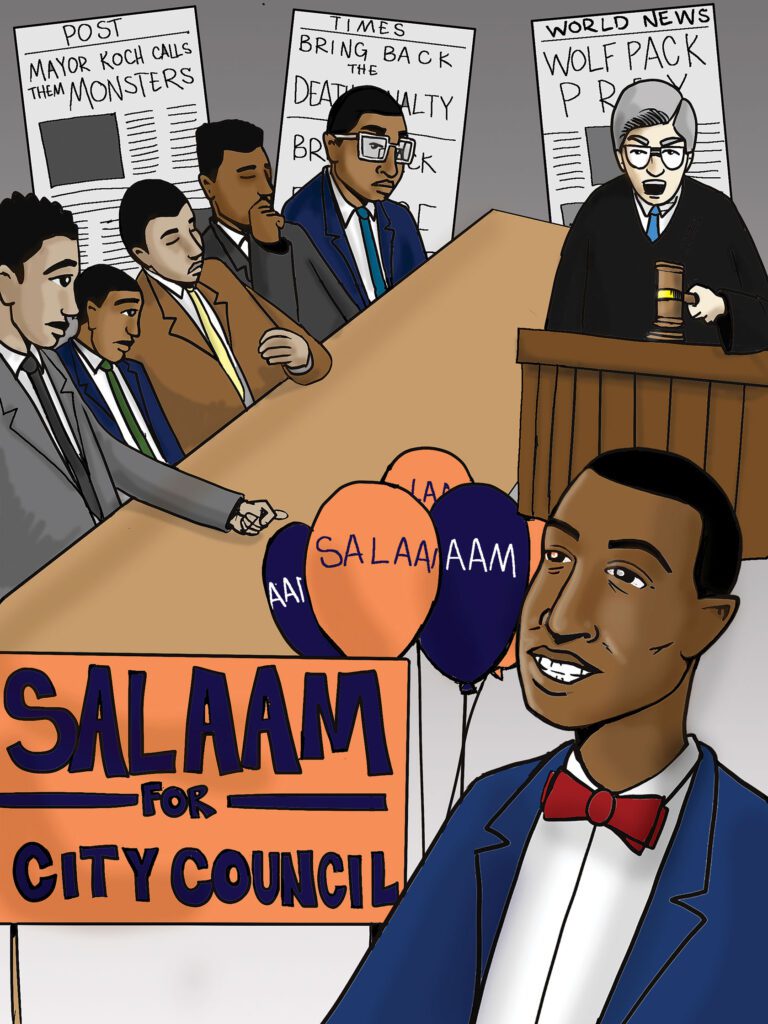
New York City has been known for two sensational media moments in the past few decades involving Donald Trump and the Central Park Five. Both have been synonymous with the city that never sleeps. Back in 1989, Trump was a real estate magnate known for extravagance and opulent ways but not known for taking political stands, Wall Street was wilding out with Gordon Gekko-type greed, and a jogger in Central Park was brutally attacked and raped.
Much was made of the fact that the victim was a young white investment banker, but easy targets were found in a marginalized community, where four Black and one Latino youth took the brunt of America’s ire. Trump, a modern-day Goliath at the time, was one of the first to exploit this nation’s racial divide, an approach he would later use successfully again with the “birther” controversy questioning Barak Obama’s right to run for president, yet again to capture the White House, and ultimately to orchestrate an insurrection.
In the aftermath of the arrests of the five teens in 1989, Trump bought full-page advertisements in the New York’s daily newspapers calling for the return of the death penalty.
The plight of the Central Park Five was one of the most glaring examples of the New York Police Department abusing its power to frame innocents for a crime. It was also the first time the department’s intimidation tactics were exposed. The Black and brown suspects were subjected to abuses that forced confessions from otherwise naïve teenagers. Yusef Salaam, one of them, later claimed that the police had deprived the five of “food, drink or sleep” for more than a day. As a result of that intimidation, he and the other four suspects were convicted in 1990 of a crime they did not commit.
This injustice did not stand. Community and public outrage followed their convictions. Salaam’s was overturned in 1997. The Central Park Five were later completely exonerated in 2002 after Matias Reyes, a serial rapist and murderer, confessed to the crime and his DNA matched evidence found at the scene.
Lawsuits were filed and two films were made about this outrageous instance of police abuse, the first being Ken Burns’ documentary in 2002. In 2014, New York City paid $41 million to settle a civil rights lawsuit brought by the Central Park Five. The mini-series “When They See Us,” produced by Ava DuVernay, was released in 2019.
Throughout his hard-won freedom, Salaam has turned his tragic conviction and incarceration into an opportunity to speak out and work as an activist. Alongside two co-defendants, Salaam in 2019 lobbied for state legislation to outlaw some of the police tactics that led to their wrongful convictions.
Now in 2023, 34 years later, the fate and fortunes of two principles in the Central Park Five saga have reversed. Salaam, 49, has just won a landslide primary victory in his race to be elected a city councilor in New York City, while Trump has been indicted for a few of his many acts that flouted the law.
Days after Trump’s indictment, Salaam released an open letter, a high-minded rejoinder to Trump’s 1989 ad: “Even though thirty-four years ago you effectively called for my death and the death of four other innocent children, I wish you no harm. Rather, I am putting my faith in the judicial system to seek out the truth. I hope that you exercise your civil liberties to the fullest, and that you get what the Exonerated 5 did not get — a presumption of innocence and a fair trial.”
Salaam has demonstrated that he did not have to resort to the tactics used against him to persevere, knowing he always had the truth behind him and keeping his eyes on reforming the system that wronged him and his teenage co-defendants. We wish him Godspeed and good luck in his future endeavors, starting with representing Harlem on New York’s City Council.







